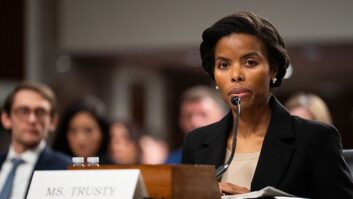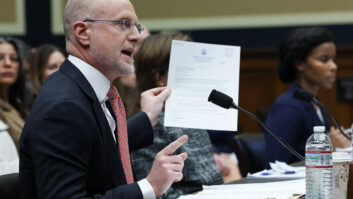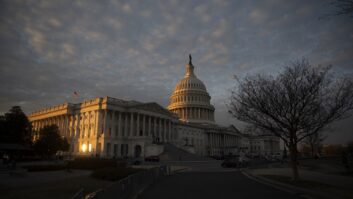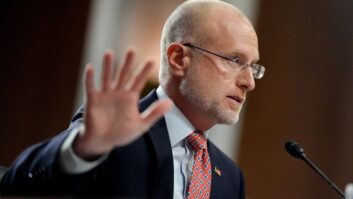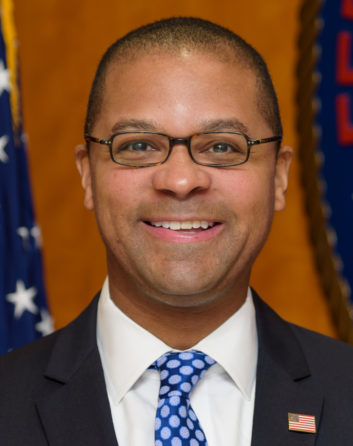 The Federal Communications Commission has a critical role to play when it comes to addressing the nation’s challenges of climate change, cybersecurity and energy resource management, said FCC Commissioner Geoffrey Starks.
The Federal Communications Commission has a critical role to play when it comes to addressing the nation’s challenges of climate change, cybersecurity and energy resource management, said FCC Commissioner Geoffrey Starks.
During a disaster, lives may depend on the nation’s public communications sector and those networks rely on power, Starks said during a speech at the Congressional Black Caucus Foundation’s 2021 Virtual Annual Legislative Conference on Sept. 14.
Given the importance of these issues, the FCC must update its rules when it comes to preplanned coordination with energy companies, which includes potentially requiring them to provide some sort of access to backup power during an emergency, he said.
Starks also pointed out the importance of working aggressively to counter cybersecurity threats. He noted President Joe Biden’s recent National Security Memorandum, which calls for a broad government and industry cybersecurity initiative across multiple infrastructure sectors. For the FCC’s part, it is in the process of engaging with federal partners to identify network vulnerabilities.
For example, the commission has started proceedings to block certain foreign telecom companies from being responsible for carrying communications within the U.S. And Starks said the commission has begun the process of finding and replacing nearly $2 billion worth of equipment from what he called “untrustworthy vendors” in the wireless telecom market.
Taking the obvious next step — revoking the authority to import or sell equipment from those same vendors — could impact devices like sensors, webcams and routers used by business, including energy companies. “The energy sector needs to know that our telecom networks are secure and resilient,” Starks said in his speech.
Starks pointed to smart meters as an example of how the energy sector is already using advanced telecom networks. Smart meters not only allow energy companies to monitor the sturdiness of a communications grid but these devices give energy companies the opportunity to easily inform consumers about their energy usage and warn about potentially high energy bills before they are incurred.
[Read: Rosenworcel Names Members to Revamped Advisory Group]
Starks’ colleague, Acting Chairwoman of the FCC Jessica Rosenworcel, has already taken steps to address security in communications across the U.S. Rosenworcel recently named members to a key advisory panel to a federal advisory committee that provides recommendations to the FCC to improve security and reliability of communications systems in the U.S.
Rosenworcel called the Communications Security, Reliability and Interoperability Council “one of the nation’s most impactful cybersecurity partnerships.” The revamped council will include government departments, public broadcast stations, private companies, telecoms, industry organizations and private organizations.
“I see deep parallels between the energy sector and telecommunications sector — both face some serious challenges, but the future also holds tremendous promise,” Starks said in ending his speech. “Let’s keep pushing to fulfill that promise.”
